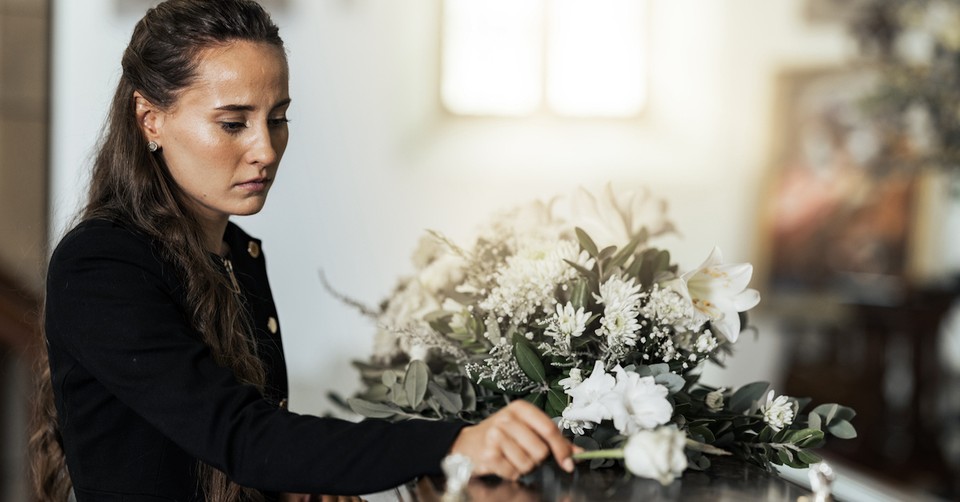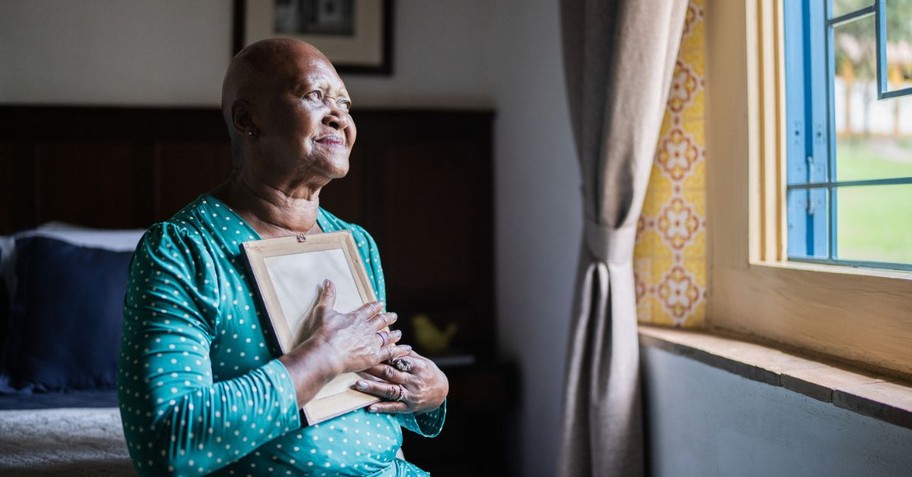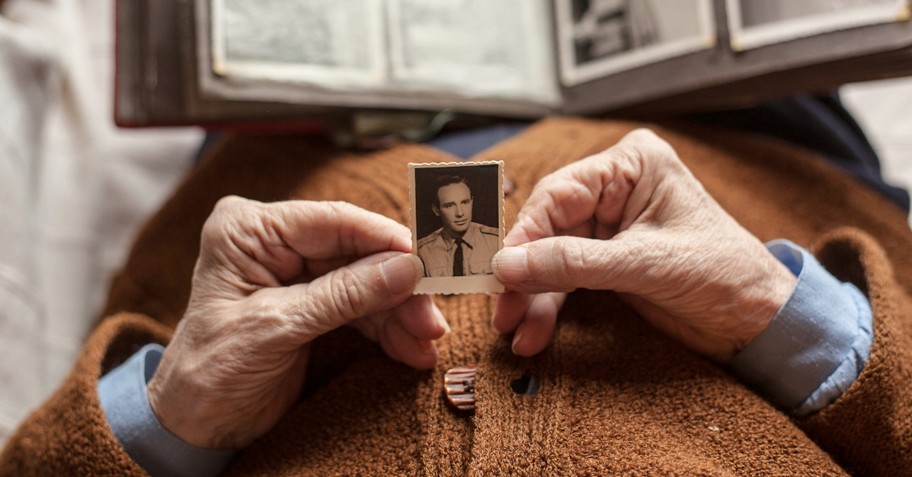9 Things to Know about a Widow’s Grief

Just a few days after my husband’s passing, my phone rang. The caller represented Shady Pines Old Folks Home.
“A personal care home? Is that one of those places where they cook your meals, clean your room, and even help you with bathing?”
“It certainly is, Mrs. Clark. We can provide a wide range of services in your time of need.”
“Awesome. Sign me up.”
(My two college-age children wondered if grief had taken their mother’s sense of reason. It had not. Neither had it taken her sense of humor.)
“All right, Mrs. Clark. I need some more information from you, starting with your date of birth.”
“May 15, 1963.”
“1963? Mrs. Clark, did you mean to say 63?”
“Sure did. I’m nifty at fifty. . . . Hello? You there?”
And so the long list of encounters began with folks who had little understanding of who a widow is and what her needs are.

What You Need to Know
According to the U.S. Department of Health and Human Services, one-third of women who become widowed are younger than age sixty, and half of those widowed become so by age sixty-five. In fact, seven out of ten baby boomers can expect to outlive their husbands.
With that in mind, here are nine things you need to know about widows:
1. A widow’s deepest pains last longer than a year.
Immediately after a death, church communities are very adept at responding with flowers or a casserole but often far less gifted in maintaining a ministry to her long-term. Her experience can feel like major surgery—a radical amputation, to be specific. She may be numb for several months. After the cards and letters stop, the visits drop off, and friends return to living their lives. Her hardest work has just begun.
Photo Credit: ©Getty Images/FG Trade

2. A grieving widow who lives alone may go several days without hearing another human voice.
Especially months after the initial funeral. Emails and text messages are good; however, phone calls and visits may be better. While this may not seem like the most efficient use of your time, efficiency and effectiveness are sometimes mutually exclusive. Perhaps that’s why Scripture specifically encourages us to visit widows and orphans: “Religion that is pure and undefiled before God the Father is this: to visit orphans and widows in their affliction, and to keep oneself unstained from the world” (James 1:27).
Photo Courtesy: ©GettyImages/Filmstax

3. A grieving widow's pain is unique and volatile.
What encourages one woman may be painfully unhelpful to another. Grief is like a virus that waxes and wanes with intensity. Emotional mine fields such as these may require intimate knowledge of the bereaved. A close friend might be better suited to visit than a newly-hired pastor. Don’t confuse compassion for a church acquaintance with a call to take personal action. If you don’t know the widow well, allow one of her close friends to direct your ministry efforts.
4. A grieving widow is often physically and emotionally exhausted.
Don’t call her late at night or early in the morning. Be patient if she is slow in responding to your acts of kindness. Graciously accept her, “No, thank you,” when she says she’s not up to going to dinner. She isn’t refusing help or harboring bitterness. She may simply need rest.

5. A grieving widow loves her children.
Watching her children suffer is a misery that compounds grief and one in which the Body of Christ is uniquely suited to offer comfort. The day of my husband’s funeral, students from my children’s college drove over four hours one way just to be with my kids. The sight of several pews packed with young adults will forever stay with me. One of my son’s professors took a vested interest in keeping up with my son each week—for years. Showing love to a widow’s children is also showing love to her.

6. A grieving widow often feels second (or third) to everyone else.
Months after my husband, Jim, died, an ice storm crippled our city. There were power outages citywide and downed trees littered homes and businesses. The damage was so widespread that I couldn’t possibly ask church friends to leave their own homes to address mine. But leave they did. A tree had fallen through the roof of one church friend’s home, yet he and his dad headed first to my place. “I’m waiting on the insurance company to call me,” he said. “I can wait here working a chainsaw as easily as pace the floor there.”

7. A grieving widow's life is not a tragedy but a gift.
When she is ready, encourage her to serve. In many cases, the death of her spouse did not hamper her gifting. Quite the contrary, it is part of how God heals her. Scripture says that God “comforts us in all our affliction, so that we may be able to comfort those who are in any affliction, with the comfort with which we ourselves are comforted by God. For as we share abundantly in Christ's sufferings, so through Christ we share abundantly in comfort too” (2 Cor. 1:4–5, emphasis added). Don’t look at her through the lens of her loss but rather choose to see God’s faithfulness as her trust in her Savior deepens.

8. A grieving widow's finances may dramatically change after the loss of the primary breadwinner.
More than half of elderly widows now living in poverty were not poor before the death of their husbands. She may have life insurance policies, long-term savings plans, and family to lean on, yet still find her finances overwhelming. After my husband’s death, two of his friends, one an accountant, the other a senior bank vice president, helped me work out a budget based on my lower income level. Added to that, these two did not treat me like an obligation. Every time they left my home, a piece of my burden went with them.
9. A grieving widow needs gospel-drenched compassion and not pity.
A friend told me, “I think people are simply trying to love you the best they can. They don’t know what to do. We’re all broken like that.” Indeed so.
Photo Courtesy: ©Getty Images/Ziga Plahutar

So how does God love those suffering?
In Isaiah, He says, “Fear not, for I am with you; be not dismayed for I am your God; I will strengthen you, I will help you, I will uphold you with my righteous right hand” (41:10, emphasis added). This infers a deep intimacy.
While compassion walks beside the bereaved, pity stands off at a safe distance. The day my husband collapsed, my boss, a physician and head of a busy community clinic, canceled his appointments immediately and came to the hospital. He looked after my in-laws with uncanny tenderness and prayed with them. When my children came in from out of town, he wrapped his arms around them both and shed tears as I told them their dad was not expected to survive. To offer compassion in any circumstance is to share in another’s suffering, and in so doing, we mirror the suffering of Christ on our behalf.
The widow knows much of Jacob’s wrestling with God, who walked with a limp the remainder of his earthly life but gained a changed heart. But God loves a grieving widow. He does not despise her tears nor shudder when she doubts her faith in the darkness.
Photo Courtesy: ©Getty Images/Marcos Calvo

About the Author
Gaye Clark works as a cardiac nurse in Augusta, Georgia, a part-time correspondent for WORLD magazine and the Director of Woman Initiatives at Servants of Grace. She also volunteers with iCare, a faith-based organization that provides assistance to trafficked victims. She writes in her free time about sex trafficking, Christian living, and lay-ministry. She has written for the Gospel Coalition, Servants of Grace, and many other online media outlets. She has two adult children, Anna and Nathan.
This article originally appeared on ReviveOurHearts.com. Used with permission.
Originally published September 15, 2025.





